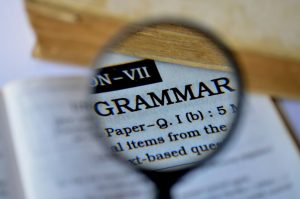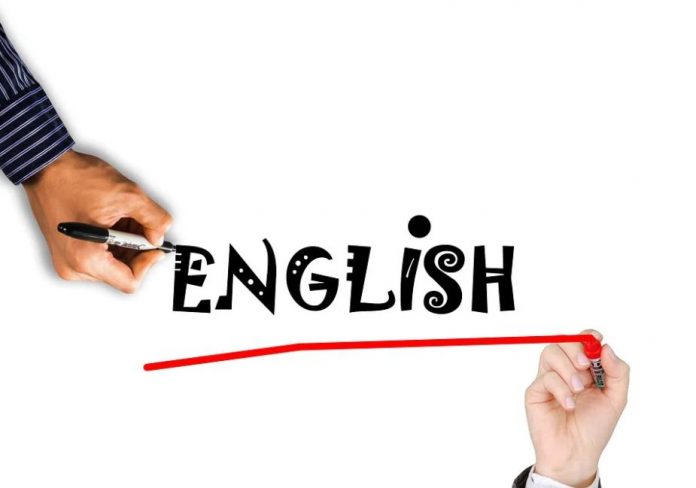Table of Contents
Is it “Whom do you love?” or “Who do you love”?
The Who vs Whom debate is a perpetual one that rages on to date. The confusion regarding the purpose and application of these two words is common among the general public. Yet, when you come to think about it, such ambiguity and confusion should never exist in the first place, when English language & grammar are two elementary subjects taught in schools all over. Inadequate knowledge is one of the biggest reasons students seek help from professional assignments & essay writers from online assignments & essay help services.
We are not here to discuss the reasons behind such confusions but resolve the Who vs Whom conflict once and for all. So, let’s dally no longer and get right down to business.
Who vs Whom According To English Grammar
There are specific grammatical rules to follow when using who and whom.
One key thing to remember is that ‘Who is a subjective pronoun, and ‘Whom’ is an objective pronoun. In addition, ‘Who’ is subject to a verb, whereas whom is used as an object in a sentence.
‘Who ‘, a subjective pronoun, is the performer of an action. For example, ” He is the guy who won the lottery.” – here, the action is winning, and ‘who’ refers to the man who won the lottery.
‘Subject’ of a sentence is the entity that performs some action, while ‘object’ is the entity on the receiving end of some action.
If we decide to use ‘whom’ instead of ‘who’, then the above-mentioned sentence undergoes some significant changes- He is the guy by whom the lottery was won. Sounds odd. While ‘whom’ can be used instead of ‘who’, it is not suitable in every case and can lead to some awkward-sounding sentences.
Remember that ‘whom’ should refer to the object of a particular verb or preposition. Follow this simple trick: if you can replace a word with they are a specific sentence, then use ‘who’; if you can return it with ‘whom’, then it’s best to use ‘whom’.
Thus, the two most important things to keep in mind art:
- First, who refers to the subject of a sentence.
- Second, whom should be used to refer to the object of a sentence.
The Golden Rule: Who functions as a subject, while who functions as an object.
The Difference Between Who and Whom
 Whom and Who are as different as I and me, he and him & she and her.
Whom and Who are as different as I and me, he and him & she and her.
‘Who’, like all other pronouns like I, he, and she, is a subject. Hence, ‘who refers to the person performing the action denoted by the verb in a sentence. On the other hand, ‘whom’ acts like me, him, and her in a sentence akin to an object. Therefore, it refers to the person to/about/for whom some action is being done.
- ‘Whom’ is the correct diction after a preposition; we should write with whom, one of whom, not with who, one of who.
The Advanced Who vs Whom
 We’ve gone through the basics of who vs whom, but it becomes a bit complicated in particular sentences. For example, you can use the tip presented earlier and use who for a word that can be replaced with he or her. And, if you can change it with him or her, use whom.
We’ve gone through the basics of who vs whom, but it becomes a bit complicated in particular sentences. For example, you can use the tip presented earlier and use who for a word that can be replaced with he or her. And, if you can change it with him or her, use whom.
But what if it doesn’t fit in a particular sentence?
Let us consider the following sentence.
A number of friends went to the party, one of who/whom was the birthday boy.
It is difficult to discern as it is a complex sentence and contains a dependent or secondary clause. An independent clause can exist alone in a sentence, but a dependent clause (even if possesses a subject and a verb) needs an independent clause to exist. In the above example, A number of friends who went to the cinema is the independent clause and the other clause, one of who/whom was the birthday boy depends upon it.
The last clause is adjectival, as it tells us more about the other part of the sentence.
For the above example, note that we have to put who or whom after a preposition. Also, the birthday boy is not the subject of the sentence but a part of an independent clause.
Thus, whom is the correct choice for this sentence?
So, if you are introducing a dependent clause in a sentence, follow the rules below.
If the pronoun is the subject, then who is correct but if the pronoun is an object, then use whom.
For example:
- Many people dislike the new supervisor whom we have elected.
[In the clause “whom we have elected,” the pronoun whom is the object of the compound verb have elected.]
- I am scared of the old woman who lives on Main Street.
[In the clause “who lives on Main Street,” the pronoun who is the subject of the dependent clause.]
Who vs Whom While Framing A Question
 The rules remain the same here, too.
The rules remain the same here, too.
- If the question is answerable with a subject pronoun (he, she, it, or they), use who or whoever.
- Use whom or whomever if it can be answered with an objective pronoun (him, her, or them).
Time For Some Practice
Now that we’ve gone through the rules and examples, it is time to test our understanding with this quick “Who vs Whom” test. ( Try not to peek at the solutions while answering!)
Quiz: Select “who” ,“whom”, “whoever” or “whomever” for each sentence:
- Who/Whom is paying for this?
- He saw a person who/whom he presumed to be the owner and told him about the incident.
- At the gathering, he met two well-dressed gentlemen, one of who/whom he knew.
- Who/whom wants dinner?
- Herein dwells a frail old man with who/whom I would like to converse.
- This is the person who/whom I told you about.
- Who/whom is going to the match today?
- Lisa is the person with who/whom I’m driving to Massachusetts.
- Who/Whom did the candidate choose as his running partner?
- To Who/Whom were you talking about just now?
- He is the guy ____________was employed here before you.
- She is the executive ___________ we employed last year.
- Of ___________ were you speaking in such a biased manner?
- ____________ do you think will do this task the best?
- He is the man ____________ we think, you told us about.
- I will vouch for ___________ you suggest.
- ____________ shall I ask about this crisis?
- Give the data to ____________asks for it.
- Tonight we shall find out _____________ won the competition.
- ____________runs this place?
- We intend to inform ____________ranks highest on the organization’s hierarchy.
- These are the production designers & stage-hands ______________I feel, everyone should acknowledge.
- _________________________ can we trust in this situation?
- Hanks, ______________has a way with words, will be the emcee.
- The person ____________ gives the highest production will receive an incentive.
- ___________ are you singing with in the next show?
- ___________would you say is the best candidate for this position?
- The counsellor will talk with ___________ is in need of her service.
- We are not really sure ___________set off the fire alarm.
- Be careful no to interact with anyone ____________ you think might be the competition.
Solutions:
- Who
- Whom
- Whom
- Who
- Whom
- Whom
- Who
- Whom
- Whom
- Whom
- Who
- Whom
- Whom
- Who
- Who
- Whomever
- Whom
- Whoever
- Who
- Who
- Whoever
- Whom
- Whom
- Who
- Who
- Whom
- Who
- Whoever
- Who
- Whom
And, with that, we round up this article. Hope it helps you resolve your who vs whom conflicts and score fantastic grades. All the best!

